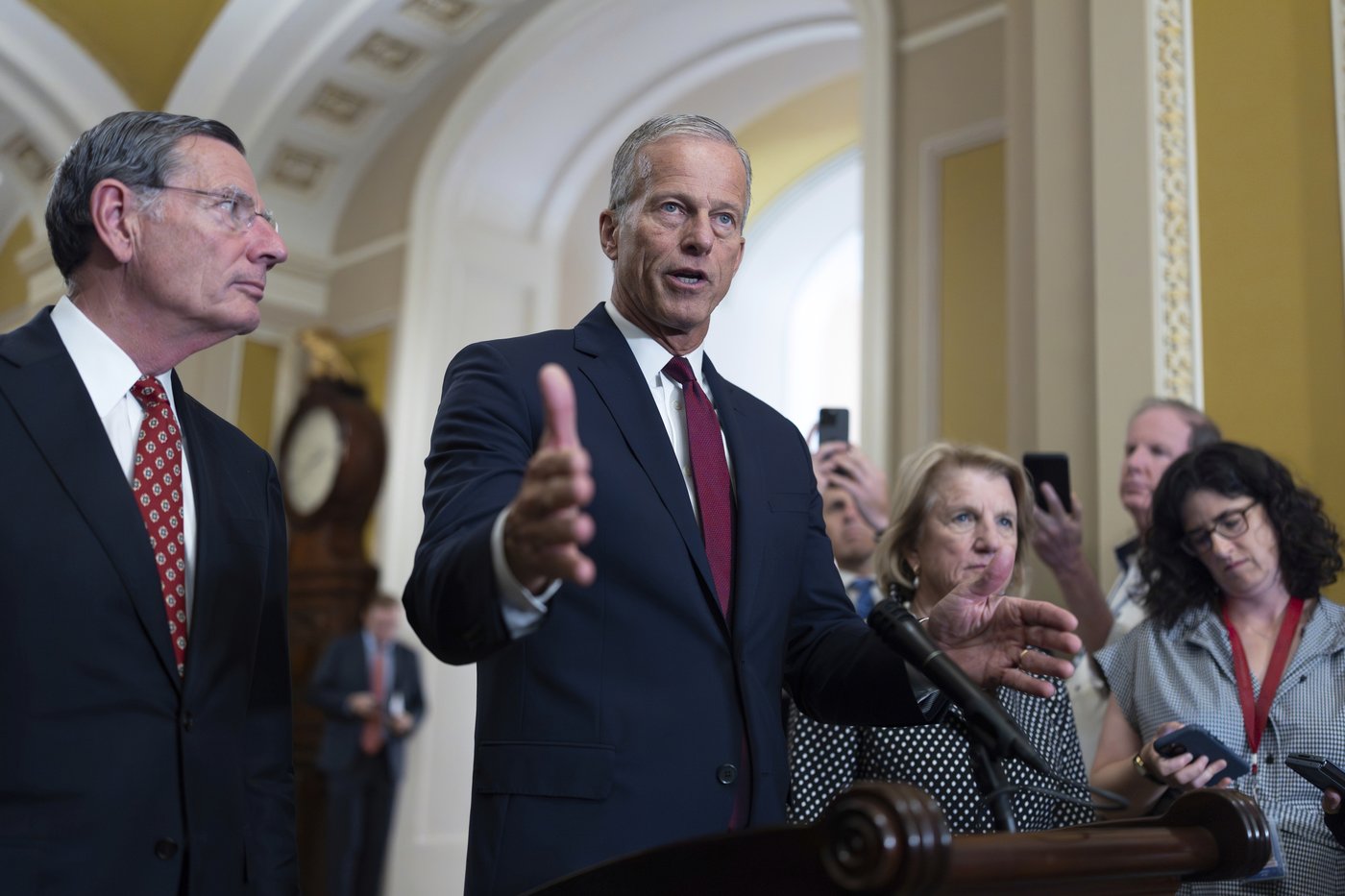Elevate your local knowledge
Sign up for the iNFOnews newsletter today!
Sign up for the iNFOnews newsletter today!
Selecting your primary region ensures you get the stories that matter to you first.

WASHINGTON (AP) — Senate Majority Leader John Thune says Republicans are ready to change the chamber’s rules to allow quick confirmations of dozens of President Donald Trump’s executive branch nominees and will move to speed up votes after months of Democratic delays.
Opening the Senate on Monday, Thune said Democrats’ obstruction is “unsustainable.” He said Republicans will begin action this week to allow votes on groups of lower-level executive branch nominees if a majority of the Senate agrees. Currently, one senator’s objection can force days of votes on a single nominee.
If the Democratic delays continue, Thune said, “there is no practical way that we could come close to filling all the vacancies in the four years of this administration no matter how many hours the Senate works.”
Changing the rules would take time, with procedural votes potentially Thursday and early next week to push through a first tranche of 48 nominees, according to a person familiar with the GOP plan who requested anonymity because it hasn’t been released publicly. The nominations include undersecretaries and staff positions for various agencies across the government as well as several ambassadors.
Republicans have been talking about options for changing the rules since early August, when the Senate left for a monthlong recess after a breakdown in bipartisan negotiations over the confirmation process. Democrats have blocked nearly every single one of Trump’s nominees, forcing majority Republicans to spend valuable floor time on procedural votes and leaving many positions in the executive branch unfilled.
The delays have infuriated Trump, who told Senate Democratic Leader Chuck Schumer to “GO TO HELL!” in a social media post after negotiations broke down over the process in early August.
The changes come after both parties have escalated their obstruction of the other party’s nominees for years, and as leaders in both parties have incrementally changed the rules to make the process less bipartisan. Democrats have blocked more nominees than ever before as they have struggled to find ways to oppose Trump and the GOP Congress, and as their voters have pushed them to fight Republicans at every turn.
Schumer has said Democrats are delaying the nominations because Trump’s nominees are “historically bad.”
“If you don’t debate nominees, if you don’t vote on individual nominees, if there’s not some degree of sunlight, what will stop Donald Trump from nominating even worse individuals than we’ve seen to date, knowing this chamber will rubber stamp anything he wishes?” Schumer said Monday evening.
Still, the proposal to group nominations is loosely based on legislation introduced by Democrats two years ago as Republicans blocked many of then-President Joe Biden’s picks.
But while Senate Republicans forced similar delays during Biden’s administration, Democrats have blocked almost all of Trump’s picks. It’s the first time in recent history that the minority party hasn’t allowed at least some quick confirmations.
The GOP proposal would only apply to executive branch nominations, not lifetime judicial appointments, and would exclude the most high-profile positions, such as Cabinet nominees, that require a longer debate time. The process to change the rules will likely require several floor votes and the support of a simple majority, so at least 51 out of the chamber’s 53 Republicans. But most GOP senators appear to be on board.
If Republicans act quickly, they could confirm more than 100 of Trump’s pending nominations this month.
The Republican move is the latest salvo in years of intensifying Senate standoffs over presidential nominations. In 2013, Democrats changed Senate rules for executive branch and lower court judicial nominees to remove the 60-vote threshold for confirmations as Republicans blocked President Barack Obama’s picks. In 2017, Republicans did the same for Supreme Court nominees as Democrats tried to block Trump’s nomination of Justice Neil Gorsuch.
Schumer on Monday echoed former GOP Leader Mitch McConnell, who warned then-Democratic Leader Harry Reid in 2013 that his party would regret changing the rules, “and regret it a lot sooner than you think.”
“I say to my Republican colleagues, think carefully before taking this step,” Schumer said, adding that “it’s going to be a decision you will come to regret.”
This site is protected by reCAPTCHA and the Google Privacy Policy and Terms of Service apply.
Want to share your thoughts, add context, or connect with others in your community?
You must be logged in to post a comment.